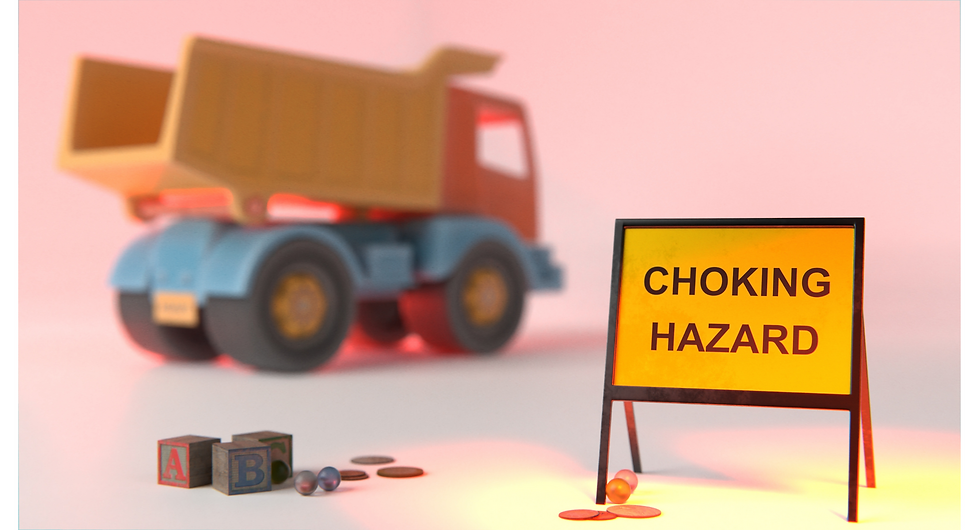10 tips for preventing choking incidents in children:
- Sherrell Aliza
- Mar 26, 2024
- 1 min read
1. Supervise Mealtime: Always supervise young children while they eat, especially when they are consuming small or hard foods.
2. Cut Food into Small Pieces: Cut foods such as grapes, hot dogs, and other round-shaped items into small, bite-sized pieces to reduce the risk of choking.
3. Encourage Proper Chewing: Teach children to chew their food thoroughly before swallowing.
4. Avoid Hard Candy and Nuts: Keep hard candies, nuts, and other small, hard foods out of reach of young children as they pose a choking hazard.
5. Be Mindful of Toys: Choose age-appropriate toys and ensure that toys with small parts are kept away from infants and toddlers.
6. Keep Small Objects Away: Keep small objects such as coins, buttons, batteries, and small toys out of reach of young children to prevent them from putting them in their mouths.
7. Create a Safe Eating Environment: Ensure that children sit down while eating and avoid running or playing with food in their mouths.
8. Teach Safe Eating Habits: Educate children about the importance of not talking or laughing while eating and not rushing through meals.
9. Learn CPR and First Aid: Take a CPR and first aid course to be prepared to respond quickly and effectively in case of a choking emergency.
10. Regularly Inspect Environment: Regularly inspect your home environment, including play areas, for potential choking hazards, and promptly remove any dangerous objects.
By following these tips and staying vigilant, you can significantly reduce the risk of choking incidents in children.





Comments